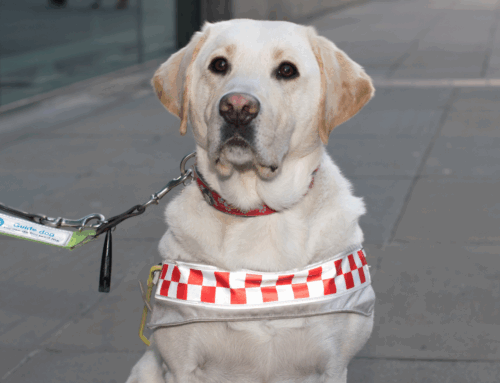When it comes to choosing an accessible venue for a conference or a work event, it can seem really complicated to know where to start. We tend to think of accessibility in terms of people who may use wheelchairs but in reality, there are a lot more considerations we need to think of.
For instance, neurodivergent people who are attending will have completely different needs from people who are visually impaired. If you are starting to think about how to select a good venue or improve the room you’ve hired for an event, then this blog is designed to get you started. If you need more information, we have a detailed, free resource available that goes into detail about accessible venues. You can find that here.
Here are five quick things to think about when starting to plan:
1 – Ask
It’s good practice to ask people beforehand what their access needs might be. A great way to do this is to send an email to potential attendees asking if anyone has any requirement needs ahead of time, what their pronouns might be or if they have any dietary restrictions if the event is providing food.
This will give you not only an idea of what you need to spot when you do a venue walkthrough but also what equipment you will need or how many accessible car parking spaces you might need.
It is worth keeping in mind that people have hidden disabilities that they may not choose to disclose. Don’t assume you know what people might need but do make it easy for people to contact you.
2 – Do a walkthrough to determine how accessible it is
Don’t assume that you know what the venue has or what it can provide. Often, even with the best of intentions, businesses can think they are more accessible than they actually are. It’s worth making a checklist and going to do a walk-through in person.
Liaise with the venue on what they can provide, what changes need to be made and who is responsible for looking after this.
If you aren’t sure what to check for when doing a walk-through, why not download our free resource?
3- Don’t just think about how accessible the venue is
In order to attend the event, people actually have to get there!
This can cause a lot of stress for disabled people, especially where public transport is concerned. It’s a great idea to provide a document ahead of your event that includes transport options.
If people are driving then you will need to look at accessible car parking spaces both on and off the premises. So if all the spaces are taken and you cannot pre-book them, where is the nearest accessible car park?
You will need to consider the route by trams, trains and buses too. Not all stations are created equally so you will need to think about step-free access, distance or bridges that could cause problems for people.
Map out the route from the nearby stations to the venue that people will need to take. It’s important to think about tactile paving, audio systems or providing simple instructions on how to get there.
If it is going to be very difficult to arrange transport or if the station is too far away then it might be time to rethink your venue. Don’t be afraid to book somewhere else if your venue isn’t suitable.
4 – Communication is key
Communication in advance can let people know what to expect and make them feel more at ease. This is where you can put all of the information such as travel routes, British sign language interpreters, Step-free access routes around the venue, quiet rooms for neurodivergent people or anything that is in place.
You will need to think about how people access that communication too. Could you provide audio for visually impaired guests? Or videos with captions? Could you consider using easy-to-understand instructions or bullet points for neurodivergent guests?
Communication goes both ways though! Make sure it is clear who is in charge and how to get in touch with them. Guests may have more questions or requirements that you need to know so make it easy for them to reach out to you or the team.
5 – Good lighting
It’s easy to forget that good lighting can be an important part of making a room accessible for people who may be Deaf or visually impaired. This makes it easier for people to lip-read or take notes. You will need to provide good quality lighting, control the level of glare from windows and also make sure you can adjust the lighting if you need to.
This is where your walk-through in the venue will come in handy as you will be able to spot dark corners, shadows or clutter on windowsills. You can work with a venue to find out if they have blinds or dimmer switches in the room you have selected.
This is only a quick look at accessible venues. Our free resource has more detailed information for event planners. You can find that here
Interested in how your business could be more accessible- Why not book disability awareness training? To learn more click here for information.
Want to read more about accessibility in the workplace?



